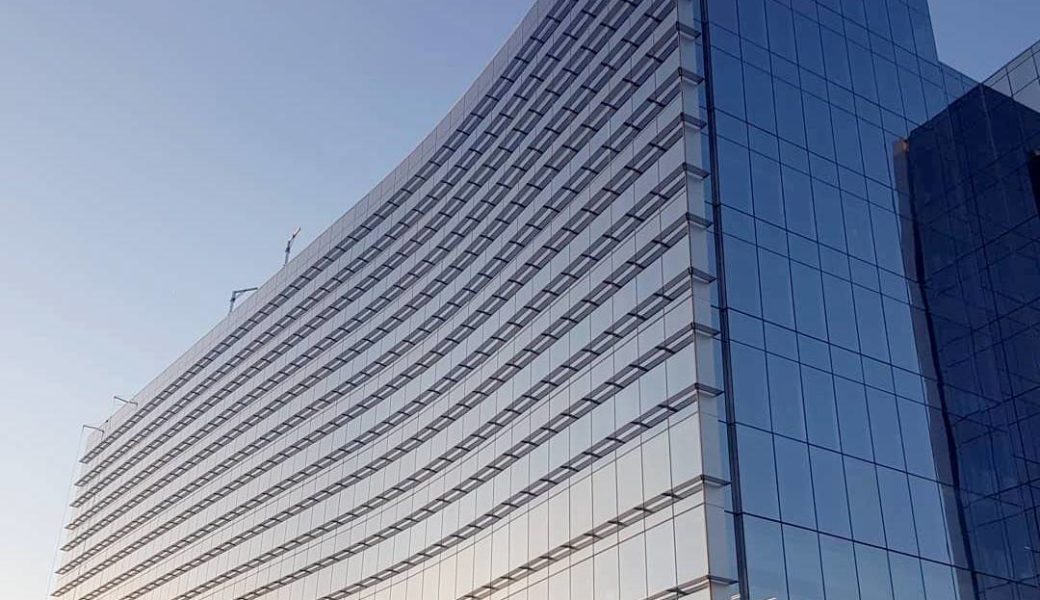One of the most noticeable advancements in the commercial real estate industry is the utilization of architectural glass for design characteristics. Architectural glass constructions are becoming common in various cities, especially in urban regions. Architectural glass is appealing, and some industrial customers have chosen excellent sparkling constructions for their commercial buildings. Another explanation why property developers and architects prefer architectural glasses is that it allows them to demand higher rents for their sassier and livelier constructions. Architectural glass, instead of partitions, allows inhabitants of a structure to enjoy unrestricted viewpoints because it can be twisted and bent into desired design, and it assists designers and constructors in a variety of ways. In this post, we’ll look at some of the fundamental qualities of architectural glass as a construction core.
Weather-resistant
Architectural Glass is generally extremely weather-resistant, enabling it to tolerate the weather. It’s also great at preserving its appearance, so you won’t be worried about your building’s exterior becoming old and dirty. Architectural glass, unlike other building materials, does not discolor and degrade as a consequence of chemical irregularities or other atmospheric causes.
Transparency
Architectural glass is a transparent material that enables sunlight to pass through it and allows the objects around it to be viewed clearly. The glass allows you to engage with the surrounding environment directly. It allows light to enter, even when the doors or windows are closed. As a consequence, it saves electricity and reduces electricity costs. It contributes to the visual beauty of the property by illuminating the room. Most importantly, it can enhance the moods of residents.
Water and dust resistant
Architectural glass is dust resistant and simple to maintain because of its smooth, gleaming appearance. In comparison to other elements, it is easy to maintain. It additionally has the perk of becoming water-resistant. Architectural glass is widely utilized in situations where the airflow is clogged with trash and particles due to its dual strengths as a dustproof and waterproof component.
UV-protected
It is well accepted that the ozone barrier is depleting. As a consequence, we demand higher material that protects people from ultraviolet rays. Architectural glass is UV resistant since it is not affected by UV light, hence it will not crack, fade, or deteriorate. Unlike UV-sensitive materials like plasters, they will persist for a long period.
Easily molded
Architectural glass is a transparent, long-lasting material that could be simply molded. To make this substance, heat is given to sands. As a reason, it can be stretched, shaped, and compacted into nearly any shape, allowing it suitable for shops, building doors, windows, and workplaces. Architectural glass is frequently utilized in furnishings after being coated with oak or metal surfaces. As a reason, it is among the most versatile building materials available.
Durability

Architectural glass is a durable, 100% renewable resource with several environmental benefits, including assisting in the adaptation to climate change and the preservation of natural resources. In many sectors, its quiet nature and dedication to ensuring the health and well-being of its residents are also highly valued.
Appealing to the eye

Architectural Glass is a fantastic technique for displaying items. Construction can be transformed into anything more spectacular, graceful, and lovely as a result of this. The utilization of glass can improve the aesthetics of the overall structure. Engineers use architectural glass for obvious aesthetic reasons in addition to the conventional benefits of large transparent areas. The artwork on one of the architectural glass paneling within the structures gives a unique atmosphere. The people outside of the construction get the chance to see this artwork and this is very pleasing to the eyes.
Architectural glass is a fantastic material that is commonly used in modern construction. The versatility of the medium has increased, and it is now used as a thermal insulator, reinforcing material, external glazed material, and paneling content in projects across the world. Although architectural glass is more costly than other construction materials, its growing importance in infrastructure design cannot be overlooked.
Mornglass. is a renowned architectural glass retailer. We offer a network of skilled professionals who can help you choose the right glass for your purposes and double-check the entire installation method. For better assistant, feel free to contact us.













